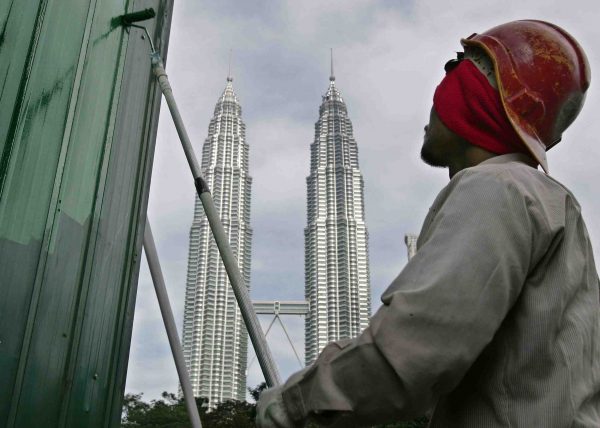But while the G20’s objectives and the post-2015 agenda overlap to a considerable degree, the two processes are quite different. The G20 is still fundamentally an exclusive club, in spite of it recognising that it has a broader set of responsibilities towards non-members, especially low-income countries, because of its weight in the global economy. Its work on development is guided by the Seoul Development Consensus and Multi-Year Action Plan, programs that focus more on economic growth than the social poverty-reduction programs of the MDGs. The G20 has also given voice on the development agenda to some of the largest middle-income countries in the world who have not found the MDGs to be relevant for themselves or their cooperation with others.
By contrast, the post-2015 agenda is an inclusive process in which all countries participate and negotiate priorities that apply universally. The starting point is the UN’s Millennium Declaration and the associated millennium development goals (MDGs) and targets that were set to reduce global poverty, but all indications are that the post-2015 agenda will be far more expansive. Low-income countries are important voices in the post-2015 dialogue.
It is important that the two processes generate an aligned agenda. The G20 must recognise the need to address social and environmental issues that could undermine growth if left unattended. The post-2015 agenda must give more prominence to growth and prosperity than is found in the MDGs. The rich countries of the G20 must accept their own responsibilities, and the post-2015 agenda must find ways to develop an agenda that is exciting to middle-income countries. It is already clear that the post-2015 agenda is more ambitious than the MDGs with an emphasis on growth and economic transformation. At the same time, the global development narrative is shifting away from something that rich countries do for poor countries to a narrative that emphasises the interconnectedness of economies and the spillovers from one country to another. Getting one’s own house in order and acting collectively in the common interest are becoming more important to global sustainable development than merely increasing aid.
The G20 has, until now, focused on the structural reforms of its members to strengthen growth, reduce imbalances and build resilience to counter the impact of the global financial crisis. To align with the post-2015 agenda it must now do the same with the looming global sustainability crisis. Structural reforms in G20 countries are needed to move to a decarbonised growth pattern to make consumption and production sustainable. G20 members must build global norms and institutions to create appropriate incentives and help weaker economies to make the transition to these new growth paths.
The difficulty faced by the G20 is that even though its members are among the largest and most important economies in the world, they have no authority to dictate measures: the G20 is not a decision-making forum but rather a discussion forum that gently steers national and international institutions and provides political impetus to selected processes. It can only lead by example. It has had trouble articulating a development agenda that generates tangible results. And it has faced considerable criticism for producing more declaratory statements than actual achievements on the development agenda.
The challenge then is to produce more deliverables that are worthy of leaders’ attention and discussion. The post-2015 agenda is promising in this regard. It proposes the collective action and structural reforms in rich and middle-income countries that are necessary to achieve global food security, universal energy access and sustainability, fiscal health, and stronger and more predictable international trade and financial flows, among other things.
The G20 could, and should, lead the way in tracking its members’ contributions against the post-2015 agenda and in framing collective action on issues like profit-shifting by multinational enterprises, while supporting stronger institutions and better governance and transparency in all economies. The post-2015 agenda provides some clues as to where the focus of the new global partnership should be, including trade, finance, aid, climate, tax evasion and illicit financial flows, and access to technology. Without strong G20 leadership to spur collective action, these issues may not receive proper attention, and could stall the shift to a new development narrative.
Australian chairmanship of the G20 in 2014 offers a timely opportunity to reframe the development agenda along these lines. Australia has clearly linked its national self-interest to Asia’s successful development. Its own experience shows how well-regulated markets can drive strong economic growth and its chosen focus themes of faster growth, more jobs and strengthened infrastructure investments resonate across all countries.
The G20’s development agenda has wrestled with two problems: how to raise the profile of development interventions so as to make them a priority for leaders, and how to focus the agenda so actionable items can be pursued. Alignment with the post-2015 agenda promises to help on both fronts by anchoring the group’s core activities to an agenda shared by the rest of the world.
Going forward, G20 leaders should throw their weight behind the completion of an ambitious agreement on the post-2015 agenda and agree to measure their performance against the targets established by the United Nations. To achieve this, G20 leaders should ensure that each member designs and implements a structural reform agenda that will lead to sustainable development in their own countries. It will also be important to build a program of global cooperation and collective action which enables other countries also to pursue sustainable development.
Dr Homi Kharas is a senior fellow and deputy director for the Global Economy and Development Program at the Brookings Institution, Washington DC.
This article appeared in the most recent edition of the East Asia Forum Quarterly, ‘The G20 summit at five’.

